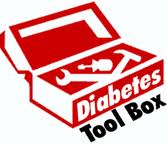When insulin was first discovered in 1921, it revolutionized the treatment of diabetes. No longer was diabetes considered a death sentence. For the first time, people with diabetes could expect to live longer, fuller lives.
Insulin transformed diabetes treatment, but for many decades it was the only drug available to treat diabetes. Then came another mini-revolution with the introduction of the first oral, non-insulin drugs to treat type 2 diabetes, including metformin and the sulfonylurea class of drugs.
Today, metformin is the first drug doctors usually recommend for people with type 2 diabetes who need to take medication. Researchers have still been on the hunt for other diabetes treatment options because metformin doesn’t work sufficiently for everyone with diabetes. Some people who take this drug still have trouble controlling their blood sugar and A1C number.
In recent years, new drugs have been introduced that offer more options for people with type 1 and type 2 diabetes. In 2005, the U.S. Food and Drug Administration approved two injectable non-insulin medications — pramlintide (Symlin) and exenatide (Byetta). Then in 2010, the FDA also approved the drug liraglutide (Victoza).
Unlike insulin, which lowers blood sugar by pulling glucose from the bloodstream into cells, these drugs cause the body to release insulin, or work with insulin to control blood sugar levels.
Here’s a rundown of the three non-insulin injections your doctor might recommend for controlling your blood sugar levels — how they work, who they help, and what side effects they can have.
Non-Insulin Diabetes Injectables | GoldenEraMart Health JunctionGoldenEraMart Health Junction


















